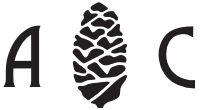In keeping with our commitment to children's rights, all classes and workshops at Alder Commons are optional. We practice and promote Self-Directed Education, and support homeschooling/unschooling families who have opted out of the conventional school system.
Self-directed education is education that derives from the self-chosen activities and life experiences of the person becoming educated, whether or not those activities were chosen deliberately for the purpose of education. — Alliance for Self-Directed Education
Optimizing Conditions
These six optimizing conditions serve as guideposts for how we support SDE.
- Social expectation (and reality) that education is children’s responsibility
- Unlimited time to play, explore, and pursue one’s own interests
- Opportunity to play with the tools of the culture
- Access to a variety of caring adults, who are helpers, not judges
- Free age mixing among children and adolescents
- Immersion in a stable, supportive, respectful community
Alder Commons is built around these optimizing conditions. This fosters an environment in which intergenerational friendships, mentorship, internships, and apprenticeships can thrive.
SDE in Practice
Education is Children’s Responsibility
At Alder Commons, children are actually responsible for choosing how they spend their time. By allowing their natural curiosity to flourish, we get to watch them set the route. While we do work to support them in their journey, it’s critical that they are the ones to generate their goals.
Unlimited Play and Exploration
Young people need space to play, make friends, build things, break things, create imaginary worlds, be deeply engaged, and be bored! By making an effort to leave the kids alone, we make space for experiences that are critical to their development. In free play, young people learn how to overcome boredom, settle disagreements, manage their time, think creatively, be a leader.
Access to Tools
Children throughout history and across cultures learn by watching other people, and by experimenting on their own. Whether learning to use a computer by fiddling with it, or learning how to sharpen an axe, kids need access to the relevant tools for mastery. We have lots of tools on site to facilitate this access, and are eager to help young people engage safely with these tools, rather than withholding them.
Helpers not Judges
It’s vastly easier to develop genuine relationships with young people if you are not serving as their judge. Because our facilitators and Members are not in a position of doling out grades and judgements, young people can follow their curiosity and ask questions without fear of retribution.
“Will this be on the test?”
“Is this a stupid question?”
Without a judge, you might instead hear:
“Can you tell me more about that?”
“How does that work?”
Free Age Mixing
Segmenting huge portions of the population into groups that are exactly the same age is a pretty bizarre way to organize society, and has only very recently become the norm. At Alder Commons we don’t segment our classes, offerings, or rooms by age. Learning is often inspired by witnessing the capabilities of someone a bit older than you, and augmented by teaching skills to someone a bit younger than you. Age-mixing provides young people with the opportunity to be natural leaders to younger kids. It also provides the opportunity to demonstrate their maturity by interacting with folks that are older than them.
While classes, workshops, and clubs are open to all ages by default, some may have a set of expectations for participants, and occasionally offerings will be created explicitly for a peer group of a given age. A Creative Writing Workshop might have basic literacy as a requirement. Accordingly, one might find a 12-year-old and a 38-year-old working on their writing side-by-side. In addition, there may be something like a teen committee that is created explicitly for that cohort.
Community
Children are equal Members of our community, and accordingly we take their ideas, objections, and thoughts seriously. We invite them to participate in decision-making of the organization. Building social connections is part of how young people learn to care for others, and receive care.



